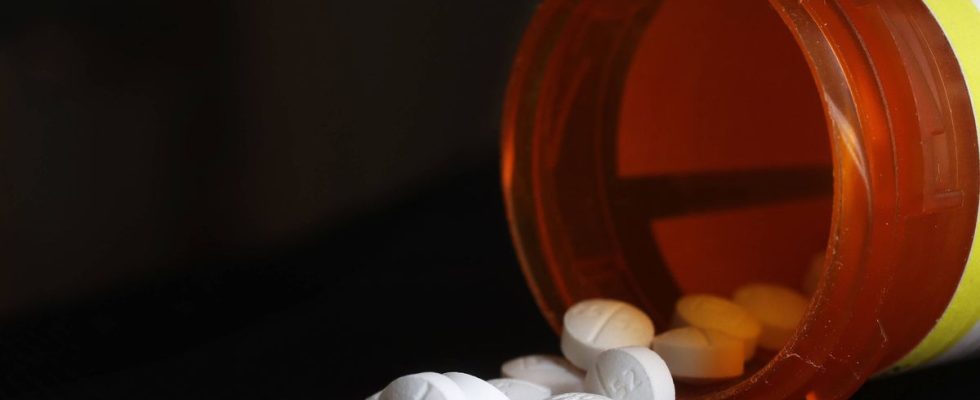Act before the phenomenon becomes more widespread. This is the meaning of the alert emitted by the Bordeaux University Hospital Pharmacovigilance Center with health authorities about oxycodone. The consumption of this powerful analgesic from the opioid family is increasing, particularly in New Aquitaine, as revealed by the newspaper L’Express. It is infamous for being the first drug at the center of the opioid crisis which is wreaking havoc across the Atlantic. “In the United States of America, the number of people who died from opioid overdoses increased by 120% between 2010 and 2018, and two-thirds of the deaths from opioid overdoses in this country in 2018 were related to synthetic opioids,” explains the World Health Organization (WHO), in an August 2021 post.
The situation in France is beyond measure, but it is sufficiently worrying for the French society of pharmacology and therapeutics published an opinion on this subject on Monday. “Culturally, in France and in Europe, we are showing more distrust of opioids and we are far from a crisis, analyzes Professor Francesco Salvo, head of the regional center for pharmacovigilance, in Bordeaux. Nevertheless, there may have been a paradoxical effect, in the sense that the prescribers were able to say to themselves: we are not in the United States, we can afford it. »
In 2019, the National Medicines Safety Agency (ANSM) had already published a report with the spectacular increase, between 2006 and 2017, in the consumption of oxycodone in France. “Gradually, it took more and more place in the management of pain,” says the professor.
A “word of mouth” effect?
In September 2022, anesthesiologists and surgeons contacted the Bordeaux pharmacovigilance center to question them about the more marked presence of oxycodone, marketed under the names Oxycontin or Oxynorm, in the pharmacies of hospitals and clinics in the region. . On the public “Open Medic” database, provided by Health Insurance, pharmacologists were able to confirm the feelings of health professionals.
“In New Aquitaine, there are more than twice the number of consumers compared to the rest of France, points out Francesco Salvo. There may have been a “word of mouth” effect between health professionals, but we will need more data to better understand. The health authorities should seize the file locally, analyze the data of use and risk more finely. An independent continuing education program to improve the relevance of opioids in the management of postoperative pain should also be launched. »
Patients who have just had surgery in a hospital or clinic come out with a prescription, which is often renewed by general practitioners, thus prolonging the prescribed analgesics.
“False Beliefs”
Despite the crisis in the United States, oxycodone still enjoys a very good reputation, which is undoubtedly not unrelated to the lobbying work of the pharmaceutical industry. It would be a more powerful painkiller than morphine and, icing on the cake, with reduced side effects. Pharmacologists challenge these received ideas to restore certain scientific truths that paint a completely different portrait of analgesics.
“False beliefs have circulated about oxycodone, as causing less constipation and less kidney failure than morphine, specifies the Bordeaux professor. This is false and totally false. If its analgesic effect is comparable to morphine, it leads to more interactions with other drugs and, as it activates more the neural circuit of the reward, it is also reasonably more addictogenic. »
Pharmacologists do not want it to be banned outright but for it to be considered as an alternative to morphine. “We need to have oxycodone in our therapeutic arsenal, especially for patients who cannot tolerate morphine, but it must be offered only as a second-line treatment, because it has no advantage in terms of safety. », clarifies Francesco Salvo.
“This signal was taken into account by the agency, reacts ARS Nouvelle-Aquitaine to 20 minutes. It will require additional investigations to better characterize it and set up an appropriate action plan. These measures are currently being considered with the regional players concerned. “It would be necessary to be able to follow the patients treated over time to assess its misuse”, points out Francesco Salvo for example.

